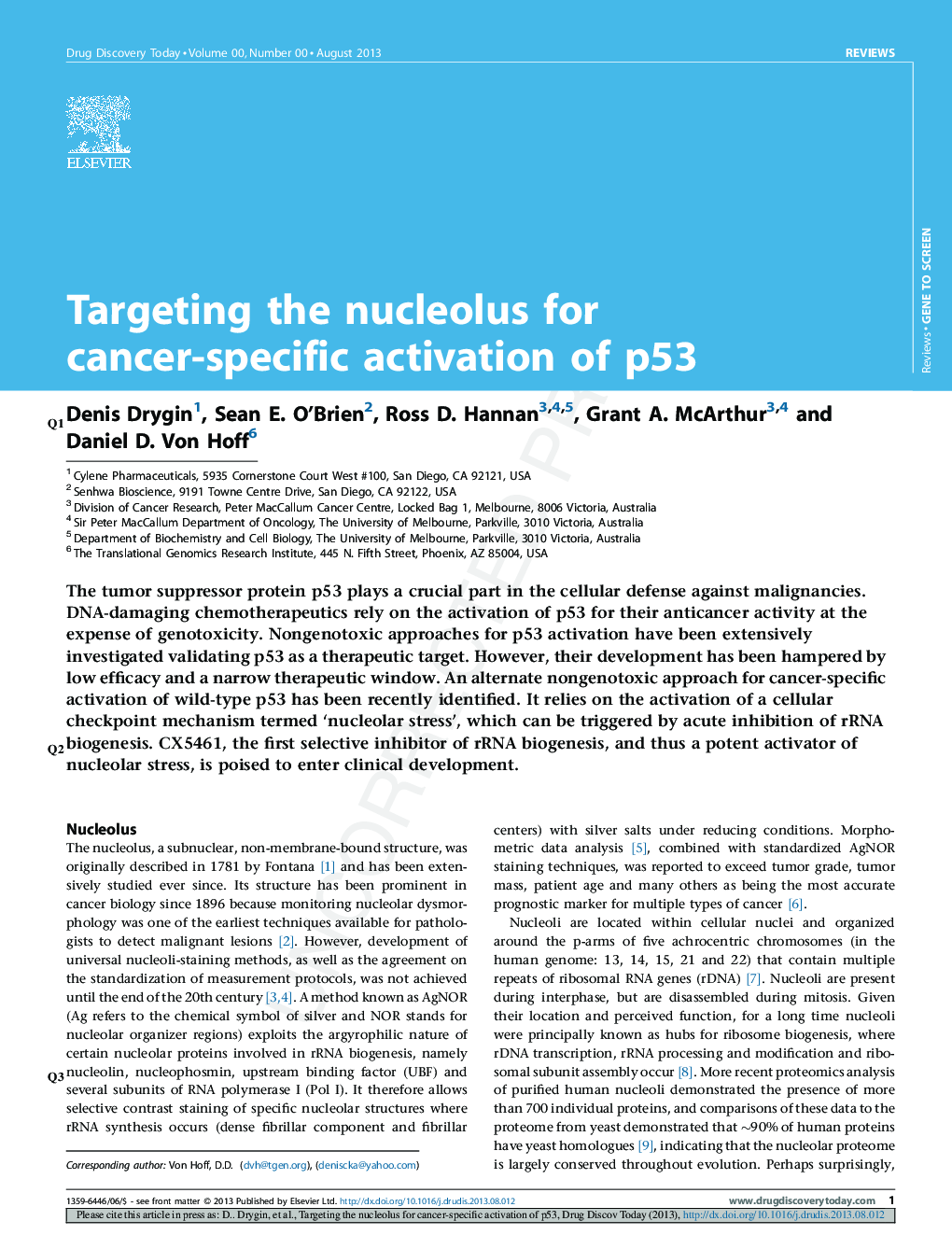| Article ID | Journal | Published Year | Pages | File Type |
|---|---|---|---|---|
| 10885982 | Drug Discovery Today | 2014 | 7 Pages |
Abstract
The tumor suppressor protein p53 plays a crucial part in the cellular defense against malignancies. DNA-damaging chemotherapeutics rely on the activation of p53 for their anticancer activity at the expense of genotoxicity. Nongenotoxic approaches for p53 activation have been extensively investigated validating p53 as a therapeutic target. However, their development has been hampered by low efficacy and a narrow therapeutic window. An alternate nongenotoxic approach for cancer-specific activation of wild-type p53 has been recently identified. It relies on the activation of a cellular checkpoint mechanism termed 'nucleolar stress', which can be triggered by acute inhibition of rRNA biogenesis. CX5461, the first selective inhibitor of rRNA biogenesis, and thus a potent activator of nucleolar stress, is poised to enter clinical development.
Related Topics
Life Sciences
Biochemistry, Genetics and Molecular Biology
Biotechnology
Authors
Denis Drygin, Sean E. O'Brien, Ross D. Hannan, Grant A. McArthur, Daniel D. Von Hoff,
